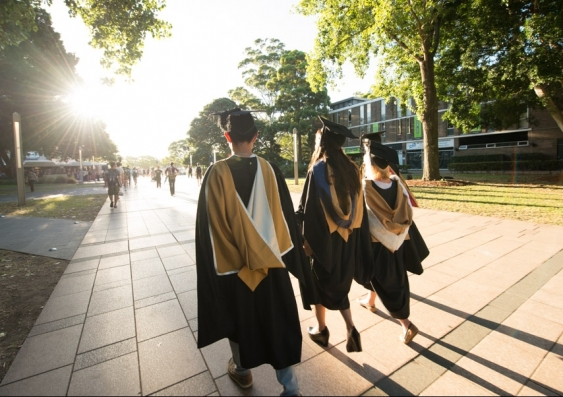The road to success may be just an ice cream cone away
There is a need to move away from the perception that university entry is the only path to success in life, writes Merlin Crossley.
There is a need to move away from the perception that university entry is the only path to success in life, writes Merlin Crossley.

OPINION: Would you rather climb a witch’s hat or an ice cream cone?
Healthy systems, or at least systems that are pleasant to be part of, exhibit a balance between competition and collaboration. When either dominates, things deteriorate.
Some say there was too much collaboration in early attempts at communism. This led to lack of performance, lack of individual pride and responsibility, and a general decline.
In education I worry there is too much competition. Students compete from the days of the National Assessment Program – Literacy and Numeracy right through selective school and scholarship exams, the Higher School Certificate, and their courses at university.
Academics at university compete for tenure-track jobs, for grants and for papers in high-impact journals.
Universities compete with each other globally, and even compete against the vocational education and training sector here.
Competition drives us to be better. Life is competitive, and I enjoy the striving and fulfilment that comes from healthy competition. I, more than most perhaps, have engaged with metrics as a university manager and I never tire of the data and statistics.
But even I worry when the competition becomes too intense. I worry for the mental health of students and the futures of our staff. I worry when everyone dreams of being president – top dog – and when every university wants to be Harvard.
I worry about what I call the witch’s hat type of competition, where everyone is converging on the same goal and competition intensifies as one ascends. There isn’t much room at the top of a witch’s hat.
Globalisation is driving the same dreams and uniformity is taking over from diversity. I worry that people increasingly will be lured into a futile race up the witch’s hat. Most people are bound to fail.
I envisage another type of competition, the ice cream cone view of life. Here individuals spread out as they climb to achieve their goals. There is room at the top in an ice cream cone because everyone is doing something different. One person aims to be the best mathematician, one the best plumber, another the best ballet dancer.
Some universities want to be like Harvard but others want to be small teaching communities with a focus on values.
One doesn’t need to get to the top to reach fulfilment. Ice cream trickles down to the various ridges that cover the cone. Eventually some melts and nourishes those who are still at the bottom. In an inclusive society one climbs up the inside of the cone.
Funds should be allocated to reward true excellence in teaching as well as true excellence in research, so institutions make choices rather than everyone aiming for the same thing.
So what magic will invert the witch’s hat to make an ice cream cone? Many of the elements are already in place. In addition to academically selective high schools, we also have high schools that concentrate on sports, or the performing arts, technology, or ostensibly even on agriculture. We might think about establishing more science, technology, engineering and maths senior high schools, and perhaps arts and humanities high schools, too.
We have to move away from the worship of university entry as the only path to success in life. The university sector, the vocational education and training sector, and the government must work together to sort out how to help students find their way into the system that suits them best.
Existing mechanisms that encourage diversification of the university sector could be strengthened further. Funds should be allocated to reward true excellence in teaching as well as true excellence in research, so institutions make choices rather than everyone aiming for the same thing.
We have systems for measuring research excellence and for rating the student experience, but perhaps because we know these systems will never be perfect we lack the confidence to attach significant funding to them.
What about those young academics who are trapped in the race up the slippery slope of the witch’s hat, completing PhDs and aiming for fellowships and grants, or struggling to survive on casual or sessional teaching?
Some of these might thrive in educational-focused roles where they could concentrate on building a career through teaching without having to compete for the fixed pool of research grants. Others might benefit from focusing intensely on research supported by Australia’s fellowship systems.
Some might move to high schools or into the vocational sector, if these parts of our education system were better supported.
Most of all we must not lose our nerve when other countries post on their Facebook pages that they are having fun.
Australia has an independence of thinking that has served us well. While globalisation has many benefits the uniformity of thinking is a risk. We should remain confident that we can find many different ways of being happy and prosperous in our island horn of plenty.
Merlin Crossley is Deputy Vice-Chancellor Academic at UNSW Sydney.
This article was originally published in The Australian.